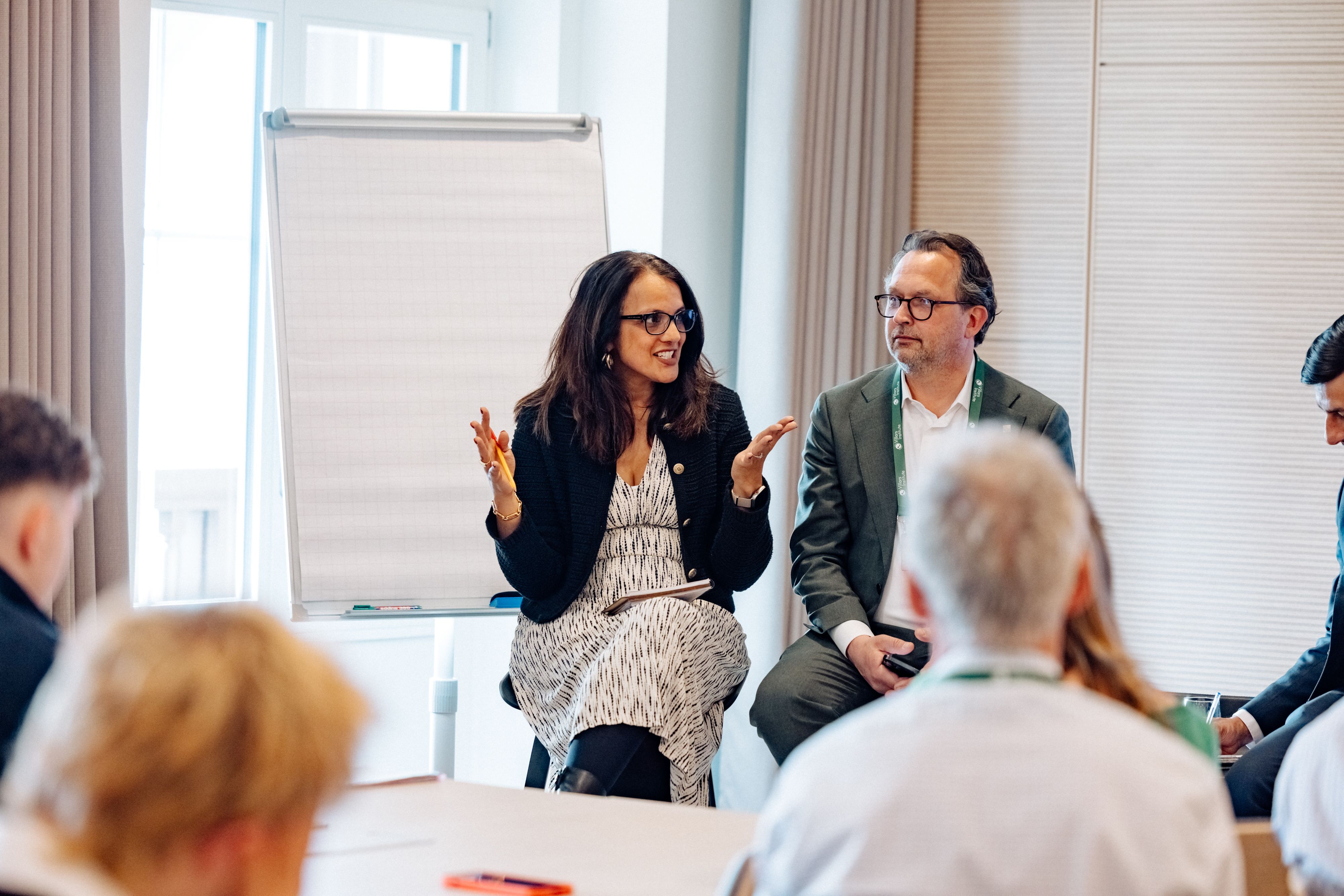Governments provide financial support for harmful production practices that negatively impact biodiversity. Such practices increase the overuse of natural resources and distort trade despite the Kunming-Montreal Global Biodiversity Framework, which formed philanthropy groups to understand the financial issue of global environmentally harmful subsidies (EHS). Agreements and solutions to the consequences of these environmental practices have been explored, but estimates of EHS spending have increased by $800 billion since 2022. According to Earth Track, $2.6 trillion was spent on EHS in 2024. Industries such as mining, as well as unsustainable agriculture and mass production, are depleting natural resources, disrupting biodiversity and nature’s resilience, and pushing ecosystems towards a tipping point that has consequences for humans and nature.
Ideas from the Speakers
In a climate-changed reality where the global economy remains heavily reliant on fossil fuels, the critical question that drove this discussion was “how can we work together on harmful subsidies to reach a turning point that delivers a decisive gain for planetary health?” The discussion among experts focusing on EHS reform provided systemic solutions to critical, complex problems that lead to biodiversity loss, climate change, and social inequality.
The discussion highlighted the need to address environmentally harmful subsidies by phasing them out and proposing new strategies to redirect support towards sustainable practices. One expert expressed a mix of uncertainty, frustration, and—ultimately—hope. Current global policies are slowing the process of preserving biodiversity. Since harmful subsidies are funded by public money, we indirectly support harmful practices that accelerate climate change and biodiversity loss. The time has come to address these subsidies and allocate them effectively.
Existing approaches propose eliminating subsidies that represent an environmental risk. This is ineffective, however, and can harm the financial and environmental system. Similarly, government subsidies intended to support biodiversity protection often lack practical effectiveness and meaningful impact. These measures create reinforcing cycles of inefficiency that increase biodiversity loss. The panel identified this tipping point as a key motivation to take action towards solutions. Rather than focusing on the problem, it is time to focus on the solutions. A speaker directed the conversation towards systemic solutions, for example the EHS reform playbook, to get to the root of these problems. Created by philanthropies to understand the finance gap in the system and break down the reallocation of resources, the playbook helps guide governments in reforming subsidies that support harmful practices, aligning them with sustainability policies.
Insights from the Audience
The discussion featured experts from the public, private, and philanthropy sectors. The conversation surfaced compelling ideas that highlighted the importance of ending financial support for harmful practices. The most common issue raised was the lack of communication between stakeholders caused by differing definitions of subsidies across sectors. Participants also agreed on the importance of collaboration, working together to take global action, and creating norms and standards that drive laws and policies that are relevant and just for everyone. This collaboration also involves identifying the purpose of these policies and assessing their impact, including gaining political and community support.
The word “community” resonated with the audience. While the urgency calls for government support and active engagement, integrating communities is fundamental for the solution’s effectiveness and balance. Although these subsidies are funded by the public service, they contribute to global economic inequality by benefiting people in higher social classes, private sectors, and industries that sustain harmful practices. In addition, narratives play a crucial role in this conversation. For stakeholders in the agriculture sector, the farm bill is a key piece of legislation, but farmers are most concerned with soil health and crop insurance. To engage important stakeholders, it’s important to shift the narrative by introducing biological products that promote regenerative farming and drive biodiversity restoration.
The participants highlighted important components of this reform’s implementation globally and its challenges. It was suggested that the changes be carefully implemented to avoid disproportionately affecting vulnerable sectors, such as the fishing industry. Furthermore, a powerful statement emerged that captured the collective spirit of the discussion: policies should support people—not fuels, not technologies. Despite the complexity of global subsidy reform, a shared determination to advance systemic solutions like the EHS reform playbook was expressed. The session ended with a call to action for younger generations to engage in radical collaboration to drive this urgent transformation.



